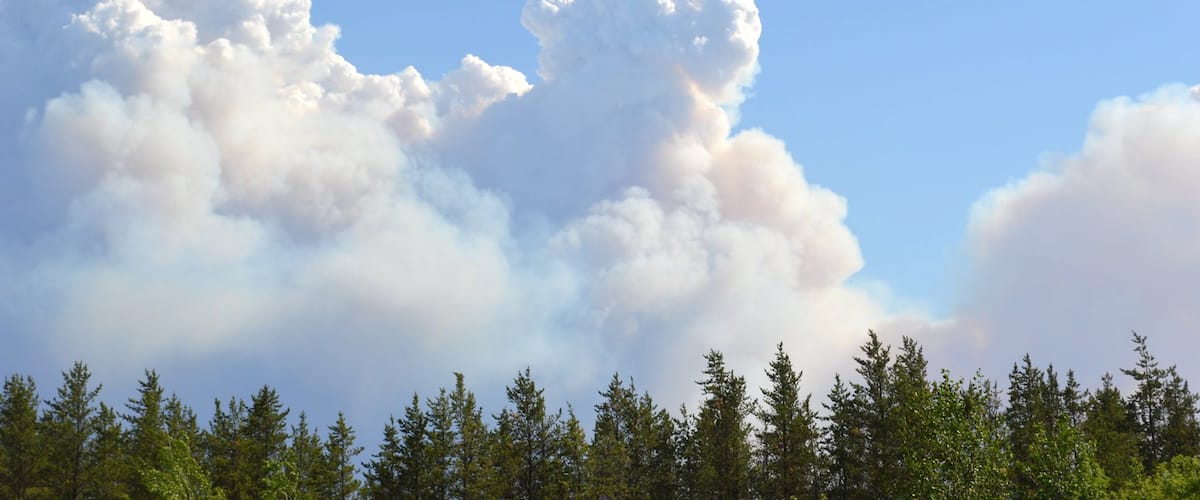While the fires that engulfed British Columbia remained a particular concern on Saturday, other provinces in western Canada such as Saskatchewan and Manitoba are also facing several bushfires that authorities are monitoring.
• Read also: Four children and three adults killed in fire: Chestermere community in shock
• Read also: Heat and bushfires: Trudeau pledges federal support in British Columbia
• Read also: Bushfires: An evacuee in Kamloops tells the story
• Read also: [EN IMAGES] Bushfires: a village almost destroyed in British Columbia
Two wildfires have found their way on the radar of emergency services in Saskatchewan in the past few days. The province witnessed 25 active fires on Saturday evening, 10 of which have not yet been controlled.
Among these ongoing fires, the blaze in Briggs north of the county has raised fears of the worst happening since it was announced on Wednesday night as it was located near the uranium mine in Cigar Lake.
“It started on June 29 in the afternoon. Steve Roberts, vice president of operations for the Saskatchewan Public Security Agency, told Global News on Friday just before 8 p.m. the next day that the area exceeded 1,500 hectares.
“The fire was brought under control, and there were no reports of structural damage,” he added.
Cameco, which operates the uranium mine, for its part, said 80 essential workers were left behind on Friday and are safe.
“There is currently no timetable for the return of the approximately 230 evacuees from Lake Cigar or for the resumption of production to the site,” the company said in a statement.
A second wildfire, called the Lock Fire, also continued west of Buffalo Narrows on Saturday near the Alberta border.
“Our main focus is on the eastern side of this fire,” Roberts told Global News, “and that part is close to a residential area.”
In the neighboring province, Manitoba said early Saturday afternoon that there were fears of fire risks “at high to extreme levels,” while about 20 fires have broken out.
A 53-hectare fire also prompted a temporary evacuation of part of the Lynn Lake community on Friday. The damage ultimately boils down to some physical damage.
Nearly 17 helicopters, six water launchers and 25 additional firefighters were deployed Saturday by Manitoba emergency services to start the fires east of Lake Winnipeg.
Many heat records have been broken
The two provinces also broke several temperature records on Friday, with 34 records set in Saskatchewan and 19 in Manitoba, according to Environment Canada.
In Saskatchewan, temperatures reached over 40°C in the Lucky Lake region, but also in Saskatoon, which beat the old record of 33.4°C in 1986.
Regina, for its part, broke the record of 33.9 degrees Celsius which dates back to 1886 and the temperature reached 35.3 degrees Celsius on Friday.
Manitoba and eastern Saskatchewan remain under heat and severe thunderstorm alerts were issued by Environment Canada Saturday night. Northern Ontario is also monitored by the Federal Agency.

“Subtly charming problem solver. Extreme tv enthusiast. Web scholar. Evil beer expert. Music nerd. Food junkie.”


